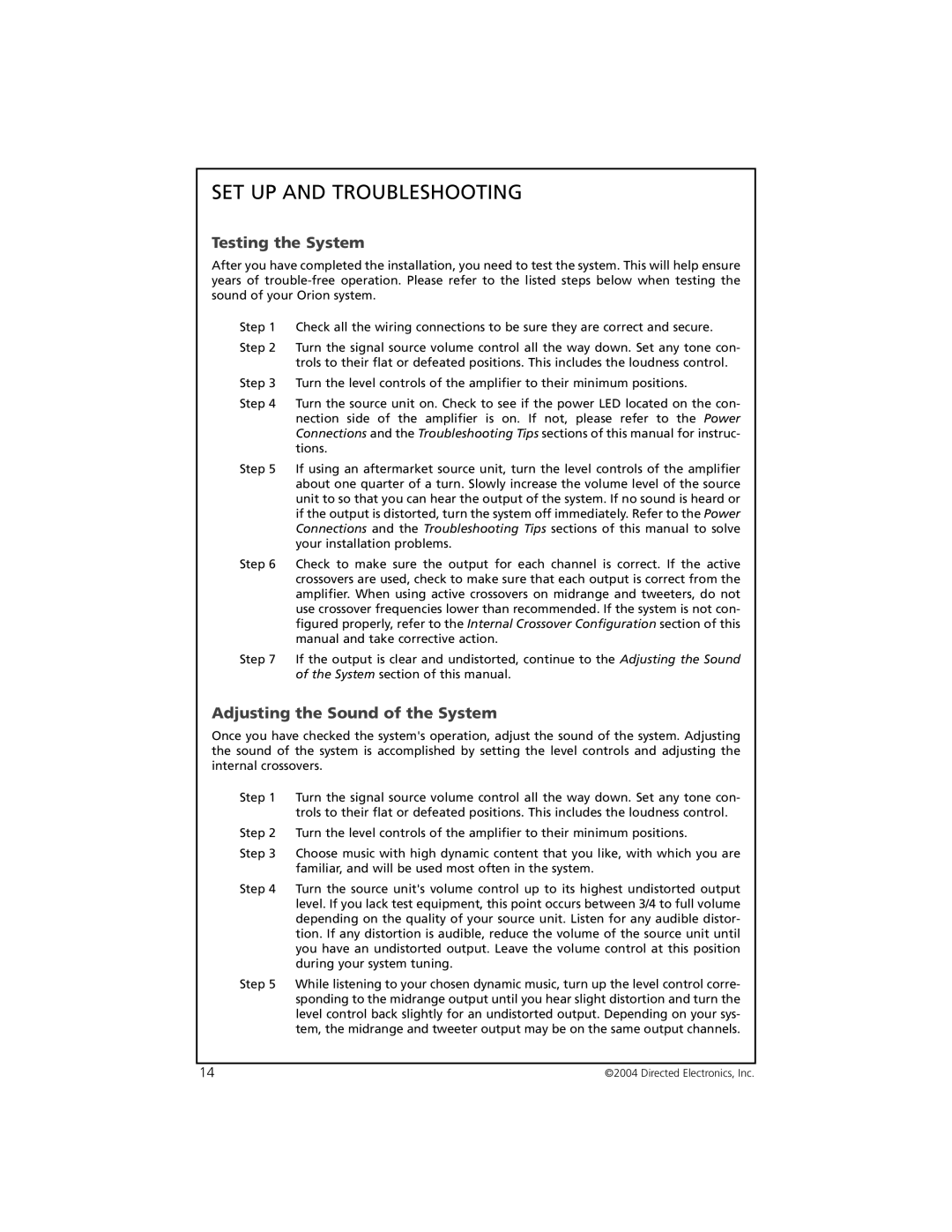
SET UP AND TROUBLESHOOTING
Testing the System
After you have completed the installation, you need to test the system. This will help ensure years of
Step 1 Check all the wiring connections to be sure they are correct and secure.
Step 2 Turn the signal source volume control all the way down. Set any tone con- trols to their flat or defeated positions. This includes the loudness control.
Step 3 Turn the level controls of the amplifier to their minimum positions.
Step 4 Turn the source unit on. Check to see if the power LED located on the con- nection side of the amplifier is on. If not, please refer to the Power Connections and the Troubleshooting Tips sections of this manual for instruc- tions.
Step 5 If using an aftermarket source unit, turn the level controls of the amplifier about one quarter of a turn. Slowly increase the volume level of the source unit to so that you can hear the output of the system. If no sound is heard or if the output is distorted, turn the system off immediately. Refer to the Power Connections and the Troubleshooting Tips sections of this manual to solve your installation problems.
Step 6 Check to make sure the output for each channel is correct. If the active crossovers are used, check to make sure that each output is correct from the amplifier. When using active crossovers on midrange and tweeters, do not use crossover frequencies lower than recommended. If the system is not con- figured properly, refer to the Internal Crossover Configuration section of this manual and take corrective action.
Step 7 If the output is clear and undistorted, continue to the Adjusting the Sound of the System section of this manual.
Adjusting the Sound of the System
Once you have checked the system's operation, adjust the sound of the system. Adjusting the sound of the system is accomplished by setting the level controls and adjusting the internal crossovers.
Step 1 Turn the signal source volume control all the way down. Set any tone con- trols to their flat or defeated positions. This includes the loudness control.
Step 2 Turn the level controls of the amplifier to their minimum positions.
Step 3 Choose music with high dynamic content that you like, with which you are familiar, and will be used most often in the system.
Step 4 Turn the source unit's volume control up to its highest undistorted output level. If you lack test equipment, this point occurs between 3/4 to full volume depending on the quality of your source unit. Listen for any audible distor- tion. If any distortion is audible, reduce the volume of the source unit until you have an undistorted output. Leave the volume control at this position during your system tuning.
Step 5 While listening to your chosen dynamic music, turn up the level control corre- sponding to the midrange output until you hear slight distortion and turn the level control back slightly for an undistorted output. Depending on your sys- tem, the midrange and tweeter output may be on the same output channels.
14 | ©2004 Directed Electronics, Inc. |
